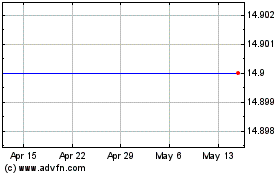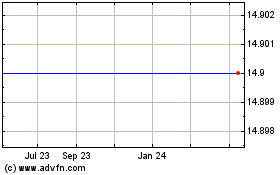Disney CEO: We Expect 'Retrans Fees' From Affiliates
September 21 2010 - 2:35PM
Dow Jones News
Robert Iger, chief executive of Walt Disney Co. (DIS), said
Tuesday that he expects his company to receive payments from
affiliate stations of Disney's national broadcast network, ABC, as
a result of the increase in carriage fees they expect from pay-TV
providers, like cable and satellite companies.
The comments, which came at an investor conference here, reflect
an emerging conflict between broadcast networks and their local
affiliate stations around the country as the industry makes gains
in so-called retransmission consent fees--payments from pay-TV
operators to broadcast networks in return for carriage of their
programming.
In the past, broadcast networks only benefited from pay-TV
subscription revenue to the extent that their corporate parents
used them to negotiate higher carriage fees for their stable cable
networks. Recently, however, as the advertising business has
slumped, broadcasters have successfully negotiated for substantial
retransmission consent fees, a shift that media executives have
hailed as a key shift for the industry.
Now that subscription revenue is flowing into the broadcast
business, national networks are demanding a share of the fees paid
to local, affiliate TV stations that use their popular programming
to drive audience ratings.
"We've struck deals already with some affiliates, and we're in
discussions with others about that opportunity," said Iger.
Vincent Sadusky, chief executive with LIN TV Corp. (TVL), and
Perry Sook, chief executive with Nexstar Broadcasting Group Inc.
(NXST), both said early at the same conference that they already
compensated national networks for their programming and were
reluctant to share in new revenue streams from retransmission
consent. Both companies own a portfolio of local broadcast
stations.
Sook said he believes stations can find other ways to work with
national networks to extract more value for both sides from pay-TV
providers.
Meanwhile, Iger said Disney's film business is not suffering
"cannibalization" in its DVD sales business as a result of its
decision to make film titles available for rent through low-cost
Redbox kiosks--a service owned by Coinstar Inc. (CSTR). Disney has
made its films available to Redbox without a 30-day delay demanded
by other major film studios seeking to protect their more
profitable DVD retail business.
Iger said Disney's DVD retail business doesn't face the same
threat that other studios do from the low-cost rental business
because consumers are more likely to want to own the company's
films. For instance, he said, Disney's movies for young children
are often watched many times in the home, making it more economical
for a family to own the DVD as opposed to renting it.
Iger also said he feels the collective value of the company's
media brands are underappreciated in the investment community, and
he said he has no regrets about the company's willingness to
embrace digital distribution channels, like Apple Inc.'s (AAPL)
iTunes service as well as online video sites like ABC.com and
Hulu.com.
Critics have noted that Apple Chief Executive Steve Jobs is
Disney's largest shareholder, arguing that his influence has led
Disney to embrace services that are threatening the long-term
health of the traditional businesses that make up the lion's share
of revenue for major media conglomerates. Iger said new media
offers new revenue opportunities for media that can help the
industry grow, and he said Disney's early willingness to embrace
digital channels has bolstered its competitive edge in the
market.
"We see digital media as a glass half full--not half empty,"
said Iger.
-By Nat Worden, Dow Jones Newswires; 212-416-2472;
nat.worden@dowjones.com
Lin TV (NYSE:TVL)
Historical Stock Chart
From Mar 2024 to Apr 2024

Lin TV (NYSE:TVL)
Historical Stock Chart
From Apr 2023 to Apr 2024
